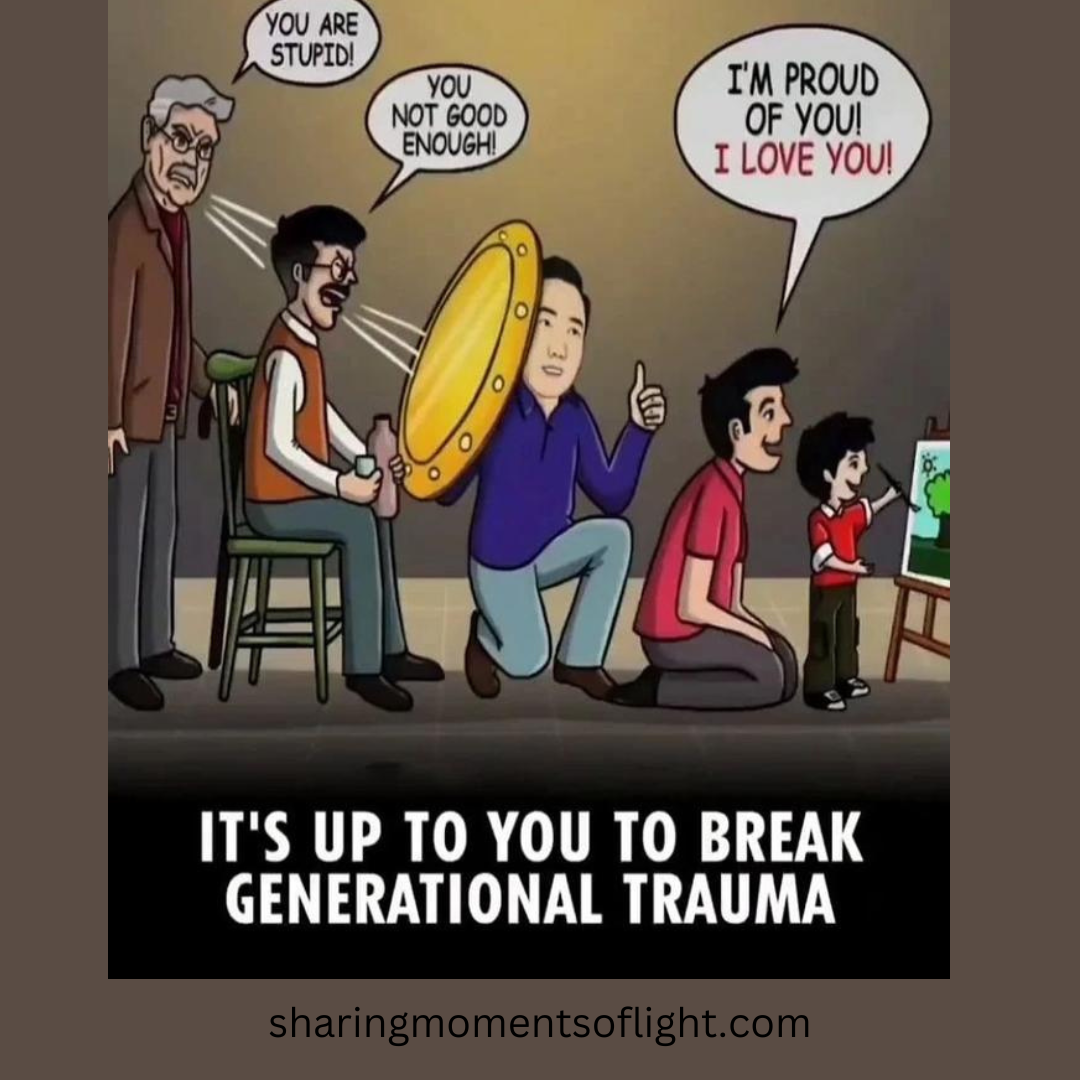Overcoming Generational Trauma
I want to share some things that I’ve learned and come to understand over the years about generational trauma. Before I do, please note that I am not an expert on the subject. This is just a little bit of my story and how I’m changing the pattern for my children.
1. Just because you were treated a certain way growing up, doesn’t make it right.
I am the youngest of 8 children. My dad was 47 and my mom was 39 when I was born. They were born in the 1930s. Things were rough for them as they were Depression Era kids. My dad had a rough childhood being the youngest of 7 children and his parents were determined not to have a spoiled youngest child. Because of his rough upbringing, he was a “my way or the highway” type of parent. Basically his children were not allowed to have a voice. It was “do as I say or get out”. As the youngest child, I witnessed things that caused me to be extremely shy and quiet when I was young. I learned that if I was just quiet, I’d fly under the radar. These are just some of the things I was non-verbally taught as a child.
Be quiet. Do what you’re told. Don’t ruffle any feathers, so to speak. If you do something wrong, don’t get caught.
2. Recognize that it was wrong and desire to change.
I’ve been married for over 21 years now. I’m in my 19th year of being a mother, as my oldest child is 18. As a parent, I’ve wanted better for my children. I wanted them to know they have a voice. I wanted them to know that they can tell me or ask me anything without me freaking out. BUT, as a young overwhelmed mother, I didn’t do the best when they were young at not freaking out. When my oldest was approaching her teenage years, I really started to recognize that what I was doing was not what I wanted for her and her siblings. I had a strong desire to change my behavior and, therefore, change our relationship going forward.
3. Make changes. It stops with me.
It is up to you to break generational trauma. When they say, “It runs in the family” tell them, “This is where it runs out!”.
My journey began in my late 30s. I started to recognize some of the same patterns in my children. What a wake up call that was! I started with making small changes. One was just listening to them; showing them that I valued their opinion or whatever they had to share. I tried to show them, not just tell them, that they are important. It was difficult, but I stopped freaking out if they said something that caught me off guard. I began listening to podcasts that really helped me be more aware of what I needed to change. I knew the changes had to begin with me. The rest would fall into place. Yes, my kids may be confused sometimes by the way I react (or don’t react, as the case may be) to a given situation; that is because they were conditioned to expect a different response.
4. Consistency is key to success.
I’ll be honest, being consistent hasn’t always been my strong suit. It is something that I still struggle with, especially when I’m physically exhausted; and that happens frequently with my hashimoto’s hypothyroidism. I forget punishments that I have given. I forget to check to see if chores are done. I’m far from perfect. BUT, I have been working on being more consistent in my actions as a mother. I notice when I’m consistent with how I speak and listen to my children, that they are more willing to come to me with different things. I do my best to be available for them. I do my best to listen them. Although I am still a work in progress, my hope is that my children can see and feel a difference.
In conclusion, it is never too late to change. Reach out in a loving way. If you fall, get back up. You will most likely receive push-back from your family as you grow and progress. As long as you are being genuine and loving, your family will feel that and be more receptive to the change; they will be more open to receiving the love you put out to them. The resistance isn’t because what you are doing is wrong, it’s because it is unfamiliar. It’s uncomfortable. Even though the comfortable patterns aren’t healthy, that’s what is familiar, therefore comfortable. Keep at it. Measuring any type of progress takes time and this is no different. Soon the tides will change. What was once uncomfortable and healthy will become comfortable and healthy.

I love that you address the discomfort that comes from making unfamiliar choices. Familiar is not always healthy. Beautiful sharing. Thank you.